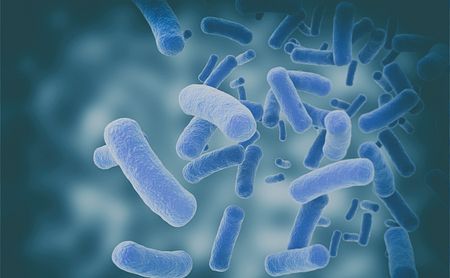FSR Awards $150K to Study Role of Microbes in Neurosarcoidosis
Written by |

A researcher investigating pathogens — disease-causing microorganisms — capable of causing neurosarcoidosis has been awarded $150,000 from the Foundation for Sarcoidosis Research (FSR).
The FSR Sarcoidosis Research Fellowship Grant will provide Paula Barreras, MD, of the Johns Hopkins University Hospital, with two years of funding for her project.
Titled “Discovering pathogens in neurosarcoidosis: using next generation immunological and metagenomic methods for unbiased pathogen detection and antimicrobial antibody profiling,” the study will seek to determine what causes the rare inflammatory disease that affects 5-15% of sarcoidosis patients.
“This year’s FSR Sarcoidosis Research Fellow provides an innovative approach to identifying potential causes of neurosarcoidosis,” Mary McGowan, MD, CEO of FSR, said in a press release.
“FSR is excited to welcome Dr. Barreras to the prestigious group of FSR Sarcoidosis Research Fellows and is confident that this research will lead to important discoveries and new potential avenues for prevention and treatment of sarcoidosis,” she added.
FSR Fellowship Grants help early career researchers gain knowledge of and develop specialized skills in sarcoidosis research through funding and mentorship.
For her fellowship, Barreras will be mentored by Carlos Pardo, MD, the director of the neurosarcoidosis clinic and the myelitis and myelopathy center at Johns Hopkins Medical Center, in Maryland. Pardo studies the interactions that take place between the immune system and the central nervous system (CNS), comprised of the brain and spinal cord, and how neurological disorders such as neuroAIDS, multiple sclerosis, and neurosarcoidosis arise.
Neurosarcoidosis is a rare subset of sarcoidosis, in which granulomas — clumps of inflammatory immune cells — form in the nervous system. While sarcoidosis in general is thought to have a combination of genetic and environmental causes, some evidence points towards a role for infectious microorganisms.
One study, for instance, discovered that the bacteria Propionibacterium acnes was present in granulomas of most patients with cardiac sarcoidosis, indicating that it could be the cause of a number of cases.
Since its founding in 2000, the FSR has supported various sarcoidosis research projects with more than $5 million in funding. The foundation has awarded $1.25 million through its Fellowship Grant program. Grants are supported through partnerships with other organizations, such as Mallinckrodt Pharmaceuticals.
“Mallinckrodt Pharmaceuticals is proud to support Dr. Barreras’s important research efforts in sarcoidosis,” said Steve Romano, MD, executive vice president and chief scientific officer at Mallinckrodt.
“We are confident that Dr. Barreras’s project will help accelerate our understanding of this disease and its management, which will help lead to better outcomes for patients,” he added.





